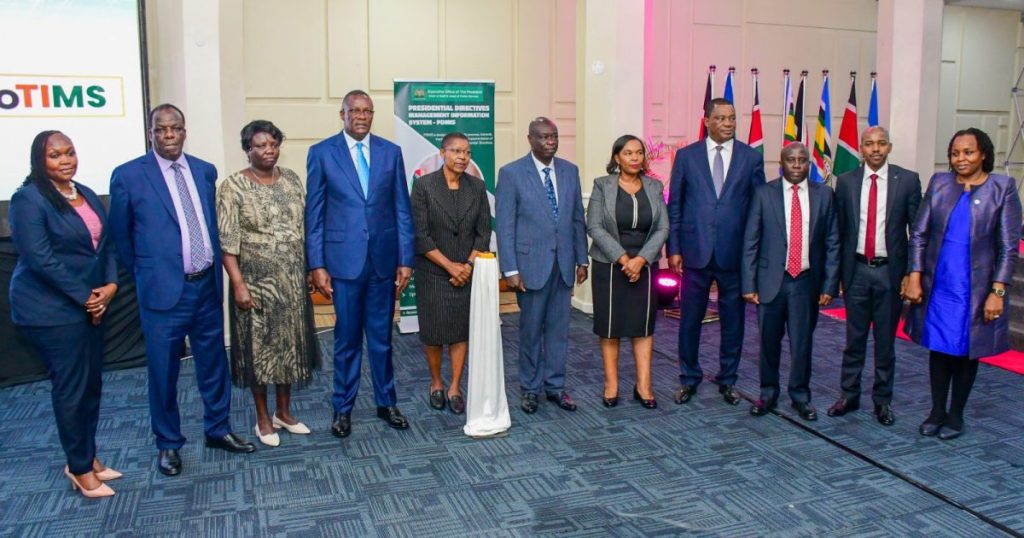Government Launches New Systems to Enhance Management of Presidential Directives and Foreign Travel
3 min read

The Kenyan government has introduced two significant systems—the Presidential Directives Management Information System (PDMIS) and the Foreign Travel Management Information System (FoTMIS)—to streamline the tracking and reporting of presidential directives and foreign travel. These innovations aim to ensure proactive implementation and enhance overall efficiency.
Deputy President Rigathi Gachagua emphasized that technology plays a crucial role in boosting public sector efficiency and fostering a more transparent, trustworthy, and accountable government. He highlighted that one of the administration’s key goals is to improve service delivery through the digitalization and automation of critical government processes, making these services more accessible online.
Addressing attendees in Nairobi, Gachagua revealed that the launch of these systems aligns with Kenya’s Vision 2030 economic blueprint, which underscores the importance of ICT in knowledge enhancement for wealth creation, social welfare, and international competitiveness. “Our administration is committed to driving transformation and fostering inclusive growth through the digital realm, which is vital for achieving our goals in sectors such as Health, Agriculture, MSMEs, and Financing,” he stated.
The National Government has allocated Sh 16.3 billion for the 2024/2025 financial year to invest in the digital infrastructure necessary for achieving these objectives. Gachagua emphasized that foreign travel remains a critical area for investment, noting its importance in building networks, learning, and forming partnerships. However, he stressed the need for sustainable practices to prevent misuse.
The Deputy President also pointed out that the FoTMIS system is essential for streamlining foreign travel processes. By reducing the complexities associated with manual clearance, FoTMIS is expected to enhance efficiency and transparency, ultimately restoring public trust and accountability.
Gachagua urged for the swift implementation of these systems to establish a comprehensive framework that adheres to travel guidelines and facilitates effective budget reviews, threat analysis, and strategic adjustments in foreign service operations. He underscored the inevitability of global changes and the necessity of digital transformation for improved processes, greater efficiencies, and a technologically adept workforce.
The PDMIS, according to Gachagua, will replace manual methods with a robust system for recording, tracking, and reporting on presidential directives. This system will ensure more effective communication of directives to Ministries and State Departments, enabling better implementation and status updates.
He encouraged public officers to leverage these systems to achieve transformative outcomes that benefit citizens and showcase local innovations and the potential of the public service sector. Emphasizing the importance of integrity in using these systems, Gachagua stressed the need for accurate and verifiable information to maintain system integrity and avoid errors.
Cabinet Secretary for the Ministry of Information, Communications, and the Digital Economy, Dr. Margaret Ndung’u, described the launch of PDMIS and FoTMIS as a significant step forward in the government’s digital agenda. She asserted that these initiatives demonstrate Kenya’s commitment to leading in digital innovation and ensuring no citizen is left behind in the digital era.
Dr. Ndung’u highlighted that the government’s digital superhighway initiative, which includes 25,000 public Wi-Fi hotspots and various other digital advancements, is designed to drive the digitalization of government services. She also referenced the successful implementation of the Cargo Information Management System as an example of the government’s dedication to enhancing efficiency and accountability.
The Cabinet Secretary emphasized that FoTMIS will not only streamline foreign cargo clearance processes for high-level officials but also reduce reliance on paper-based methods. This shift is expected to save time and resources while ensuring strict adherence to established policies.